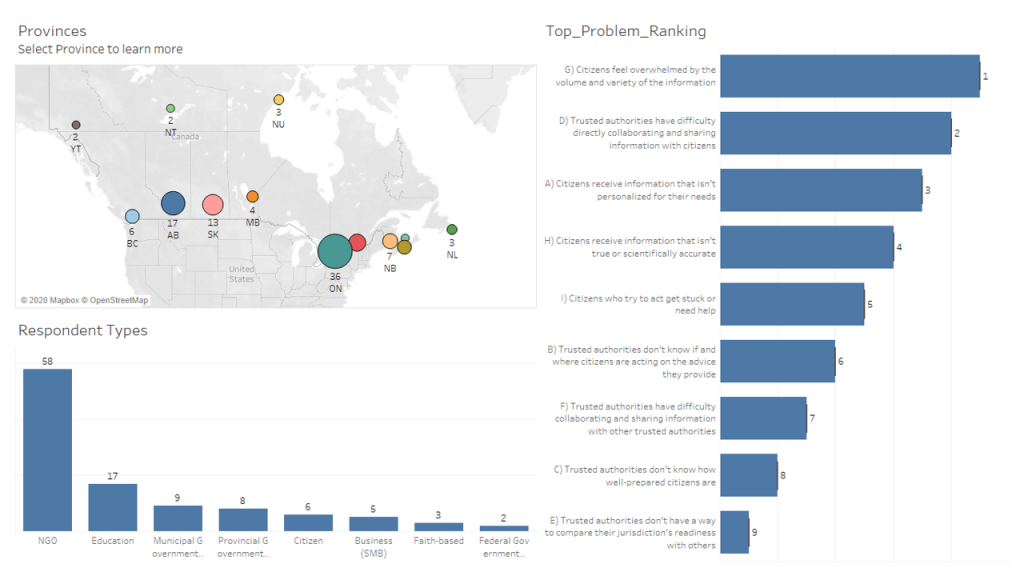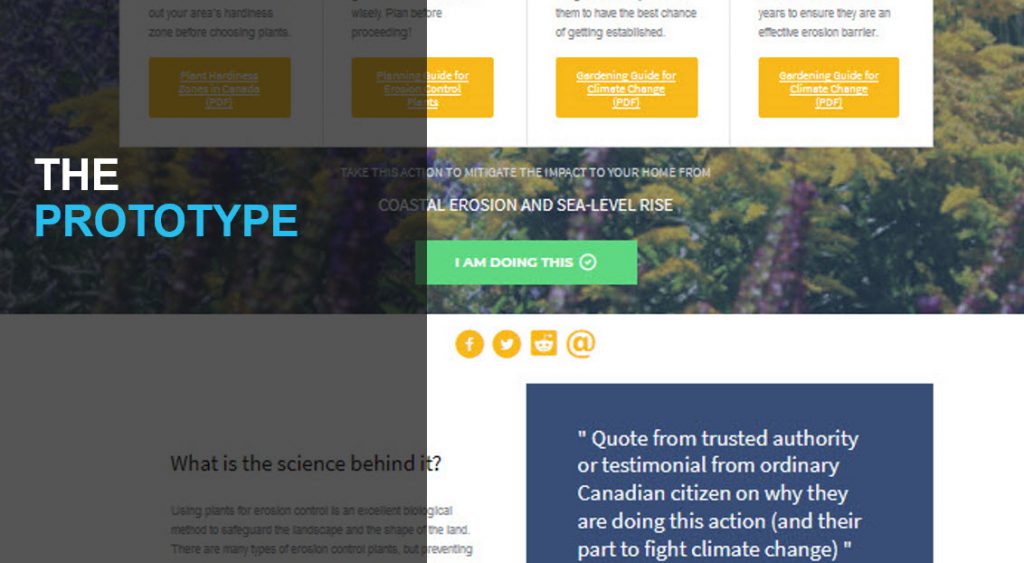Projects
CC0-Climate Change Problem-Solution Respondents
Project start and end dates:
November 2019 to July 2020
We investigated by conducting primary and secondary research. The study used a mixed-methods design to integrate quantitative and qualitative data.
We randomly surveyed Canadian citizens on SurveyMonkey to better understand the level of awareness of climate change action and the readiness to act by use of climate change action platform.
The survey consisted of multiple-choice questions with predefined answers providing respondents with the options to choose and rank them on a ‘Strongly Disagree’ to ‘Strongly Agree’ and ‘Definitely would not’ to ‘Definitely would’ scale.
This was followed problem-solution interviews with 110 Canadians across all provinces and territories.
The initial problem-solution concept we identified was the result of a great deal of market and technical research taking place over the course of a year (some of those projects are listed on this website). To date, over one hundred Canadian, American, and Australian students from over twenty courses have been involved, using the Riipen platform (Riipen is an experiential learning projects platform that links students and employers. The students gain hands-on experience, demonstrate employable skills and network with employers).
The people we interviewed consisted of officials from the three level of government, faith-based organizations, business, ordinary citizens and members of NGOs.
We performed video interviews with them using Zoom, during which we asked them to validate and rank a set of problem statements and then provide further detail on the reason for their chosen priorities.



Our greatest finding was the willingness of citizens to take some level of personal responsibility and use climate change impact platform to help themselves, their neighbors and community plan for, mitigate and recover from climate change disasters.
We also discovered that although some citizens (often in rural areas) were significantly less likely to believe climate change was anthropogenic, but they believed strongly in the importance of environmental conservation and more empowered to take action to preserve it. In contrast, an overwhelming majority of Canadians (especially in urban areas) did believe climate change existed and was caused by humans, but a significant amount felt despair and although they were willing to act, most did not know how they could take meaningful personal action to avoid, mitigate, or recover from climate change disasters.
Communication and trust were key issues that kept arising. Unsurprisingly, the definition of “trusted authority” was contentious to some respondents. It is clear that trusted authorities can become less trusted over time, and that fake news is a problem. We are planning a future project which will focus on this issue in greater detail.
We have published our initial high level results in a PDF file, which can be shared and reused for non-commercial purposes, on our https://fight.climatechange.ca website. We plan to publish more information including our prototype concepts later this year.
Thank
You!
We would like to thank Canadian citizens, NGOs, academics and scientists, businesses, faith-based leaders, and officials at all levels of government, for taking the time to interview with us and respond to our survey questions.
Related Project
Software can help the world respond to climate change impacts and disasters.
In 2019 we set out to investigate if there is a need for a solution that gives citizens personalized help preparing for and recovering from climate change impacts and lets trusted authorities assist them and report on their results.
As part of this effort, a great deal of market and technical research was conducted over the last few years. Over 140 students have been involved so far, in dozens of academic institutions in Canada and internationally.
Our greatest finding is the willingness of citizens to take responsibility and help themselves, their neighbors and community plan for, mitigate and recover from climate change impacts and disasters. We also confirmed that a software solution can be built to help overcome the barriers they face when trying to do so.
Now we’re working on a prototype and sharing our findings and progress. Find out more on our OASIS project website!


